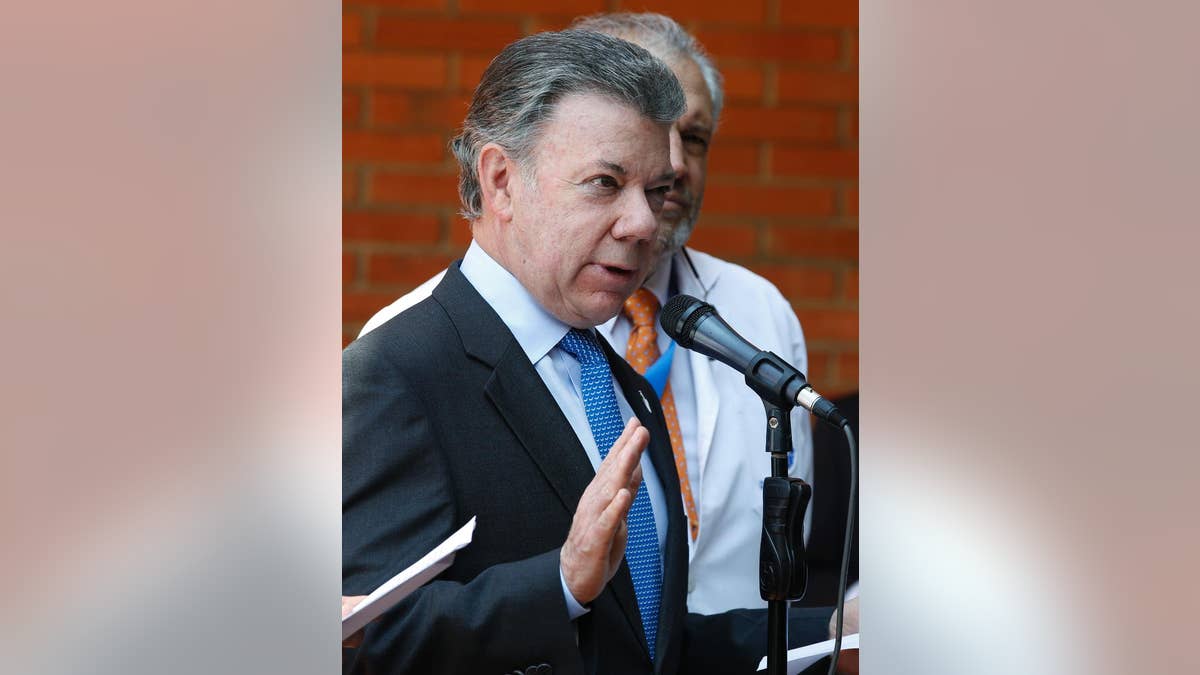
Colombia's President Juan Manuel Santos gives a press conference at the Santa Fe clinic in Bogota, Colombia, Monday, Nov. 21, 2016. Santos said he will undergo radiation to treat high levels of a prostate-specific antigen that his doctors say don’t represent a return of cancer. (AP Photo/Fernando Vergara) (The Associated Press)
BOGOTA, Colombia – Colombian officials met Tuesday with leftist rebels to plan their next move after former President Alvaro Uribe refused to support a modified peace deal that the government hopes to sign in the coming hours.
The gathering at a Roman Catholic retreat in Bogota followed a seven-hour meeting Monday night in which government negotiators tried to persuade Uribe and other skeptics to support the accord that would put an end to a half-century of fighting with the Revolutionary Armed Forces of Colombia.
The FARC and government negotiators introduced some 50-plus changes to the original accord that was narrowly rejected by voters in a referendum last month.
Uribe, a still-popular figure who has led opposition to the peace deal, said Tuesday that the changes are cosmetic and that the accord, if implemented, represents a risk for Colombia's democracy because it doesn't go far enough in punishing rebels who committed scores of atrocities. He requested a meeting with the FARC leadership to discuss his concerns, an encounter that seemed unlikely.
"Uribe governed badly, corrupted and bled Colombia during eight years and never wanted peace. He wanted to defeat the FARC, but he couldn't," said FARC commander Pablo Catatumbo, one of the rebel commanders in Bogota, writing on his Twitter account.
President Juan Manuel Santos has made clear there's no more room for negotiation. He's vowed to present the modified accord to congress for approval over the objections of Uribe, who wants to submit the changes to another referendum that he's confident Colombians will once again reject.
The standoff comes amid concerns that a delicate ceasefire could unravel unless implementation begins soon. Last week, two suspected FARC fighters were killed in combat with security forces in a confusing incident now being reviewed by United Nations monitors.
The FARC are also outraged over the killing of several land reform activists and human rights defenders, three over the past weekend alone. Santos on Tuesday convened a meeting with top officials and the U.N. human rights envoy in Colombia to discuss the killings.
The recent murders "are palpable, dramatic evidence of the risks and uncertainty that exists around the implementation of the peace accord," Santos said after the meeting.








































